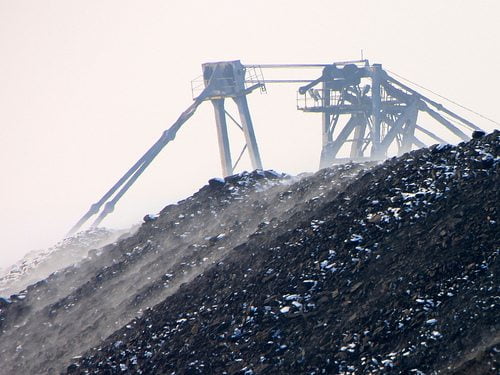

Economy
EU set to fund UK carbon capture and storage project
The European Union has given the go-ahead to a UK-based carbon capture and storage (CCS) project that would help clean up a fossil fuel plant by capturing emissions and burying them deep under the North Sea.
The White Rose CCS project will combine the existing coal-fired power station in Selby, North Yorkshire, with a carbon dioxide transportation network across Yorkshire and the Humber. It will capture some 2 million tonnes of CO2 – equivalent to 90% of all the emissions from the plant – and possibly play a key role in cleaning up the fossil fuel industry.
The European commission confirmed this week that the project is set to receive funding worth around £250m, which will enable Drax and partners Alstom and BOC to develop the proposals further.
An EU spokesperson said, “The UK has confirmed the White Rose CCS project”.
“The project will hence be considered for an award expected by mid-2014. If awarded, this project could boost the local economy and create jobs when they are most needed.”
Many believe that CCS can play a key role is the UK’s energy security strategy whilst meeting decarbonisation targets. However, many plants, including Drax, are already converting from coal to biomass, as the UK has increased its coal imports from countries such as Columbia and Russia.
It was announced last month that two of the three remaining deep coal mines in the UK were under threat.
Kellingley colliery in Yorkshire and Thoresby colliery in Nottinghamshire were targeted by UK Coal for closure after struggling to balance the books. The organisation said it needed to find around £10m to keep trading.
The government hinted that it would provide the funding, but as an aid to closure and under the condition that the National Union of Mineworkers (NUM), one of the main unions involved, accepted the closures within 18 months. This would leave 1,300 miners unemployed.
Chris Kitchen, general secretary of the NUM claimed that with CCS technology in place, coal can be part of the solution to climate change.
He added, “We know that the pits are currently uneconomic, but we also know that this is mainly owed to the price of coal being dramatically reduced by the shale revolution in the US. They’re beginning to close down their coal mines and when the overspill is gone, prices will rise to a position where UK Coal starts to see profits again”.
Kitchen said that 19m tonnes of coal are imported every year from Russia on ships that use cheap bunker fuel – the highly polluting dregs collected from oil refineries.
“We know that 94% of Kellingley’s production goes to Drax station, which is just ten miles by train. Environmentally, importing from Columbia, the US and Russia is much worse than this scenario”, he added.
He said that it would be more costly to the taxpayer to close the pits than to subsidise them until coal prices finally rise once the backlog of coal from the US was sold off.
Further reading:
Two UK coal mines risk closing down
UK to end public financing for coal power plants overseas
US carbon emissions fall 3.4% in 2012
Clean energy tech receives €2bn boost from European Investment Bank
Fossil fuel industry can be ‘part of solution’ to climate change, says UN climate chief


 Environment12 months ago
Environment12 months agoAre Polymer Banknotes: an Eco-Friendly Trend or a Groundswell?

 Features11 months ago
Features11 months agoEco-Friendly Cryptocurrencies: Sustainable Investment Choices

 Features12 months ago
Features12 months agoEco-Friendly Crypto Traders Must Find the Right Exchange

 Energy11 months ago
Energy11 months agoThe Growing Role of Solar Panels in Ireland’s Energy Future





























